Spotlight
Remember the Sabbath
Published
1 year agoon

By Michael Juntunen
Sabbath is from the Hebrew word Shabbat, which means to cease, desist, or rest. Most people familiar with the term Sabbath tie it to Sunday, our day of rest, when we take a day off work to enjoy time with the family, attend church, or “veg out” watching a football game.
However, God looks at the Sabbath as more than simply a day off work. We find in Exodus 20:8-11 that God established the Sabbath as a special day that we are to keep holy or set apart. Therefore, we are instructed to make the Sabbath different from other days and assign it greater importance. This passage also says that God blessed the Sabbath, indicating that there are some benefits that come to those who keep this special day.
Since God placed so much emphasis on the Sabbath, I wanted to explore the subject to see if I could gain a better understanding of it. I discovered some concepts about the Sabbath that have helped it become more meaningful to me, which I want to share with you.
First, the Sabbath is a matter of lordship.
God tied the Sabbath to His work of creation (Exodus 20:11). He made all of creation in six days, and on the seventh day He rested. Divine rest was a common idea in ancient literature. According to ancient tradition, when the work on their temple was completed, a deity’s rest was obtained, and they would inhabit the temple to take their place as lord to rule over and maintain order in their world.
Isaiah 66:1 (NKJV) says, “Thus says the Lord: ‘Heaven is My throne, and earth is My footstool. Where is the house that you will build Me? And where is the place of My rest?’” Could it be that the six days of creation represent God’s work in building His temple? The seventh day, then, would be the day in which He takes His place on His throne to rule and reign over His creation, establishing Himself as Lord over His Kingdom. Examples of this might be found in Exodus 40:34-38 and 1 Kings 8:10-11 when the work on the tabernacle and Temple of the Lord were completed. The cloud and glory of the Lord filled the buildings, and God came to “rest,” to take His place as Lord over the nation of Israel.
I believe, then, that God wants us to make the Sabbath distinct from any other day to provide an opportunity for us to pause from our regular activities to recognize Him as Creator. It also is a time when we can renew our commitment to Him and surrender our lives to His lordship, a time to allow our Creator God to fill our lives again with His glory and take up residence as our Sovereign Lord.
Second, the Sabbath is a matter of identity.
In Deuteronomy 5:12-15, we see that God connects the Sabbath to Israel’s deliverance from Egypt. When the Israelites were slaves in Egypt, their only responsibility was making bricks. Their value to Pharaoh was in their ability to make bricks. If they could no longer make bricks, they were no longer valuable. As a result of the exodus from Egypt, God delivered them from emotional bondage as well as physical bondage. By giving them a day of rest during which they no longer had to produce, God was saying that their value was not in what they did but in who they were – His people.
Today, we still tend to tie our value and identity to what we do. We work hard to gain approval from our parents, employers, or others whose opinions we value. We want to be productive so we can be seen as successful or at least competent. If we do not perform well or are not as productive as we think we should be, we see ourselves as failures and our value as a human being as diminished.
By giving us a Sabbath rest, God is providing us an opportunity to step back from our busyness and rest in Him. It is a time when we can allow God to speak to us and let us know that our identity is not based upon what we do, but rather on who we are. He values us even on days when we are not producing. God loves us, not because we do things for Him, but simply because we are His children.
Third, the Sabbath is a matter of freedom.
While the Israelites journeyed through the wilderness, God told Moses that He would provide them with manna from heaven every morning (Exodus 16:11-30). The people were to gather only enough manna each morning to feed themselves and their families for that day. They were to do this for six days, but on the seventh day they were not to gather manna for it was to be a Sabbath day. God promised them that on the sixth day they would be able to gather twice as much as on the other days, and they could keep it overnight without it becoming infested with maggots.
The same principle is found in Leviticus 25 when God introduced the Sabbath year and the Year of Jubilee. The Year of Jubilee, however, was declared not only a Sabbath year but also a year of liberty. During the fiftieth year, all lands or homes that were sold due to indebtedness were to be returned to the original owner, and anyone who was forced to sell themselves as a slave was to be released. This is a picture of God’s redemption and restoration of all things as He originally intended them to be.
Jesus tells us, “Come to Me, all who labor and are heavy laden, and I will give you rest. Take my yoke upon you and learn from Me, for I am gentle and lowly in heart, and you will find rest for your souls. For My yoke is easy, and my burden is light” (Matthew 11:28-30, NKJV). He is inviting all of us to stop laboring to please God through our “good works,” to stop working so hard to prove that we are valuable and to quit placing our security and survival on what we can do.
Throughout each of these passages, God stressed that obedience played an important part in receiving blessings, redemption, and freedom (Exodus 16:27-30; Leviticus 25:18-19). The introduction of the Sabbath seemed to be a test to see if God’s followers would trust Him enough to obey Him or if they would feel that their survival depended on what they could do. The writer of Hebrews illustrated this concept by attaching Sabbath rest to Israel’s faith and obedience. Believers are warned not to follow Israel’s example of rebellion against God’s Word. The author stated that because of their disobedience and lack of faith, Israel was not able to enter God’s rest (Hebrews 3:18-19; 4:2).
It is easy for us to be critical of Israel for their lack of faith. But if we are honest with ourselves, are we not guilty of the same thing? Won’t we find that instead of trusting God, we are relying on our own efforts for our provision, security, and survival? When we are confronted with our own financial giants, battling health issues, or facing any number of life’s problems, do we worry about how we are going to work things out? Are we afraid that we may not survive, or do we submit our problems to the Lord and rest in Him, trusting that He will lead us to the right solution?
Jesus tells us, “Come to Me, all who labor and are heavy laden, and I will give you rest. Take my yoke upon you and learn from Me, for I am gentle and lowly in heart, and you will find rest for your souls. For My yoke is easy, and my burden is light” (Matthew 11:28-30, NKJV). He is inviting all of us to stop laboring to please God through our “good works,” to stop working so hard to prove that we are valuable and to quit placing our security and survival on what we can do. Instead, He is asking us to put our faith in Him and follow His yoke (teachings). If we can learn to do that, we can rest – be free from worry and fear.
It is important to designate a day specifically for the Sabbath rest, but Sabbath is not limited to one day. For me, the Sabbath is a mindset that permeates every part of my life. The Sabbath means that I daily recognize God as my Creator and Lord, surrender to His lordship, and invite Him to establish His throne in my life. It also means that I don’t have to try to earn His love and favor by doing things for Him. I can rest in the knowledge that He values me because I am His child and my identity is wrapped in my relationship with Him, not in how much I produce or how successful I am.
As a result, Sabbath also means that I can obey God and follow His path for my life fully trusting that He will protect me and provide for all my needs. My security, success, or survival depends on Him and not on me. Therefore, I am free from worry, fear of failure, or the feeling that I must always perform well to prove my value. I can now rest in the assurance that I am His son, and He is well pleased with me. Sabbath means living in FREEDOM!
About the Author
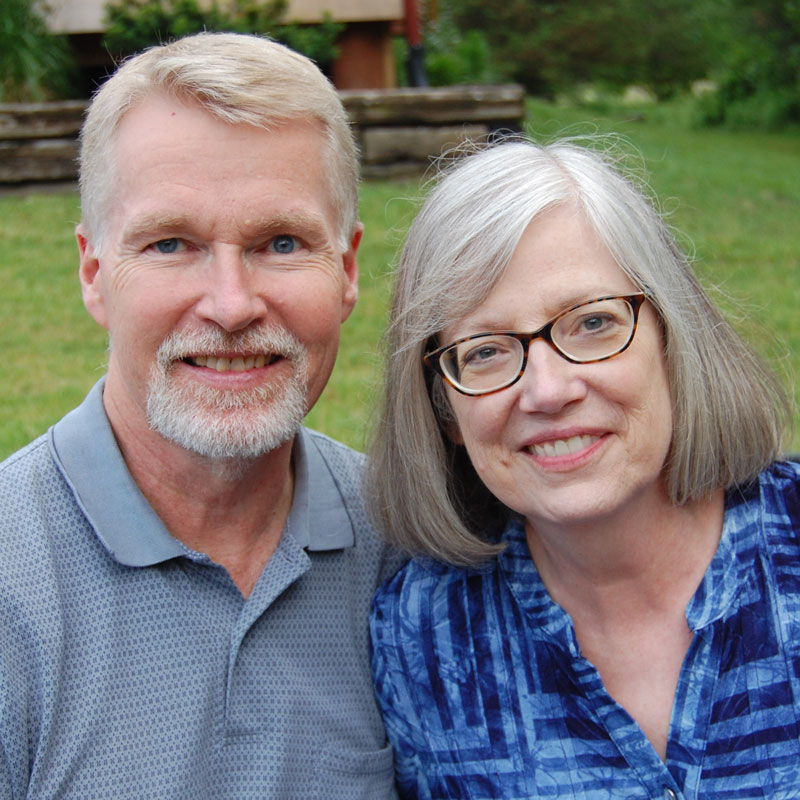
Mike and Nancy Juntunen pastored churches in the Central and Mountain Plains regions of Open Bible for over thirty years before going to the mission field. They were the directors of INSTE in Hungary for ten years and also assisted in the Open Bible Church in Gherla, Romania, for two years before coming back to the U.S. The Juntunens, currently serving as pastors of Church of the Open Bible in Hardin, Montana, have three grown sons and seven grandchildren.
Spotlight
God’s Greater Plans: From Infertility to Three Babies in One Year
Published
4 weeks agoon
July 1, 2024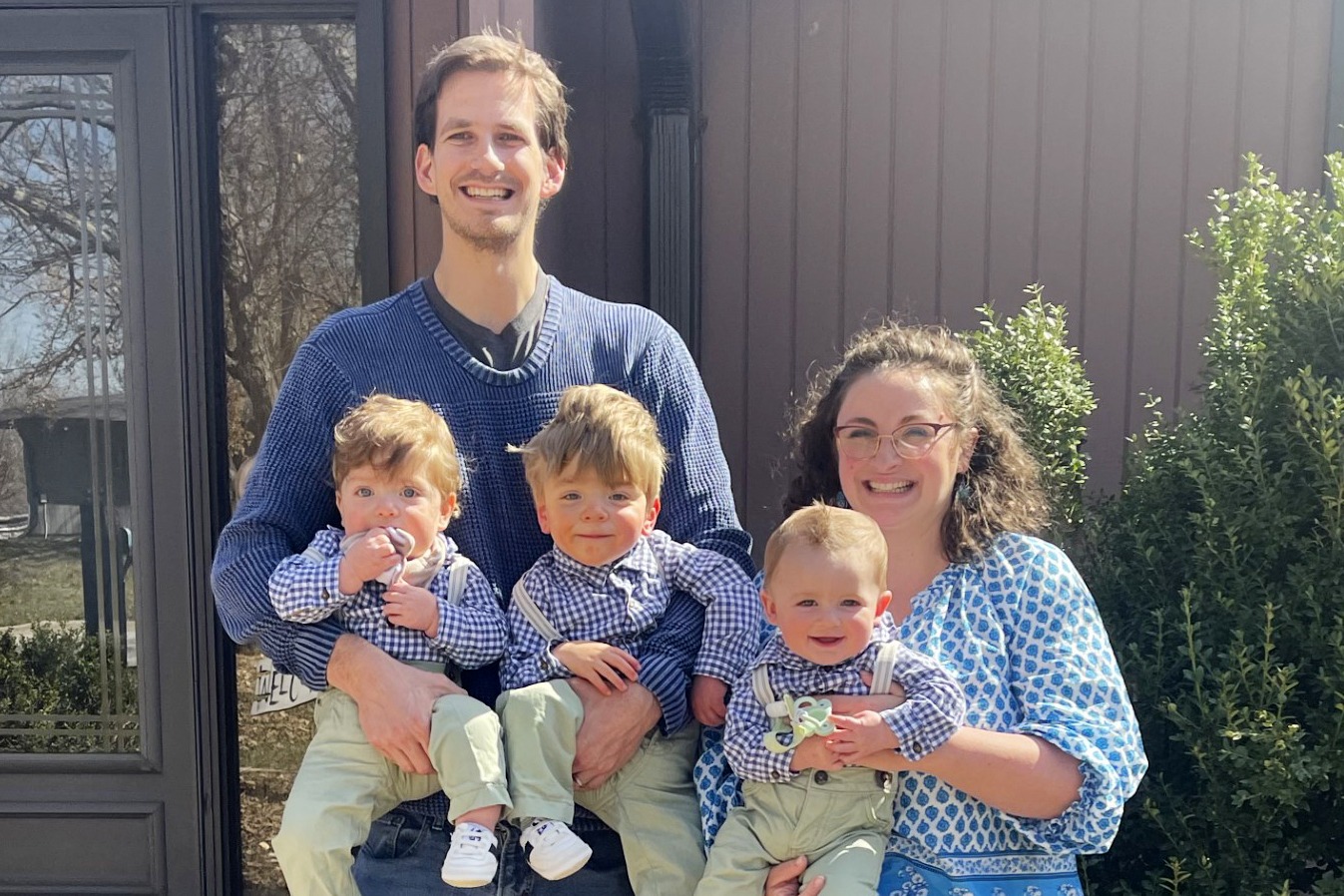
When my husband and I married in July of 2019, it was with a firm understanding of our shared life goals and dreams, and kids were a big part of our plans. In our minds we would have our biological children first, and then when we were ready, we would pursue adoption. But the Lord always has a better plan than ours, doesn’t He?
After we had been married for two years and still had not conceived, we discovered that I was having fertility issues. I saw multiple doctors and was prescribed several medications to help with conception. During this time, I remember telling my husband it felt like we were living in “limbo,” not getting anywhere closer to having a family. Because of our powerful desire to start a family soon, we decided to divert from our original plan and become foster parents.
“Had I conceived when I wanted to…we never would have met Noah and Leif, our precious sons.”
After an entire summer of preparation, our license went active, and we took a couple of short-term placements. These were our first experiences as parents and had us seriously questioning our parenting abilities! But in December of 2022 we got a call about a four-month-old boy named Noah. Noah was in the ICU with significant health concerns. We weren’t given any idea how long he would stay with us or what his life would look like, and we were scared to commit to taking on a placement that held so much uncertainty. After visiting sweet Noah in the hospital and spending considerable time talking and praying about it, we decided we wanted to take this baby and give him a loving, nurturing home — something he had not yet experienced in his short life.
Noah joined our family on December 16, 2022, and immediately, I became remarkably busy caring for him and taking him to all his appointments. We were so busy, in fact, that thinking of my own fertility was put on the back burner; it just wasn’t my priority anymore.
On January 18, 2023, after a routine follow-up for Noah at Blank Children’s Hospital, we got a call from a surgeon informing us that Noah’s brain was bleeding and we needed to rush him to the hospital for emergency brain surgery. The surgery was successful, and I stayed with Noah during his recovery in Iowa City, two hours from our hometown. We were finally discharged and returned home on January 22. During my time in the hospital with Noah, I did not have any of my fertility medications or supplements (but like I said, I wasn’t focusing on that so much anymore).
So many children have endured brokenness and trauma, and they need to be loved. If we as the church do not show them the Father’s love, who will?
Little did I know that the Lord had everything perfectly planned. On February 2, just eleven days after our hospital discharge, I found out I was pregnant. We were overjoyed!
But God wasn’t done surprising us. A few short weeks after discovering my pregnancy, we received word that Noah’s biological mother was pregnant as well, due to have a baby boy in a few months. We knew immediately that if this baby also needed to be placed in foster care, we wanted him to be with his brother, so we told our social worker we would care for him. Noah’s baby brother Leif was born in May, and just five months later, our son, Sven, was born in October. Overall, when we brought Sven home from the hospital, we had Noah (fifteen months), Leif (five months), and Sven (newborn).
In December of 2023, we were able to officially adopt Noah and Leif, ending their days of foster care and guaranteeing them a safe, loving family for a lifetime. It has been a crazy and chaotic year, but I would not trade it for the world. At the time of this writing, their ages are twenty months, ten months, and six months. Our days are filled with exploring new things and reaching new milestones, and our home is brimming with baby gear (think three car seats, three highchairs, a triple stroller…you get the picture).

I honestly believe God planned our entire story. I couldn’t see it at the time of infertility, but had I conceived when I wanted to, we never would have entered foster care, and we never would have met Noah and Leif, our precious sons. Going through this experience has given me so much assurance that God’s timing is always perfect.
If you are in the midst of infertility, I know it can be hard to hear “God has a plan!” But as someone who has seen His perfect plan come to fruition, I encourage you to go to God in prayer. Tell Him your desires, your frustrations, and your hurts, but also consider asking God what He wants from you in this season of waiting. Maybe He has called you to foster, adopt, or minister to the next generation through your church ministries.
Perhaps you haven’t experienced the struggle of infertility, but you do have a heart for the next generation. How might God use you to help disciple and love on kids around you? So many children have endured brokenness and trauma, and they need to be loved. If we as the church do not show them the Father’s love, who will?
About the Author
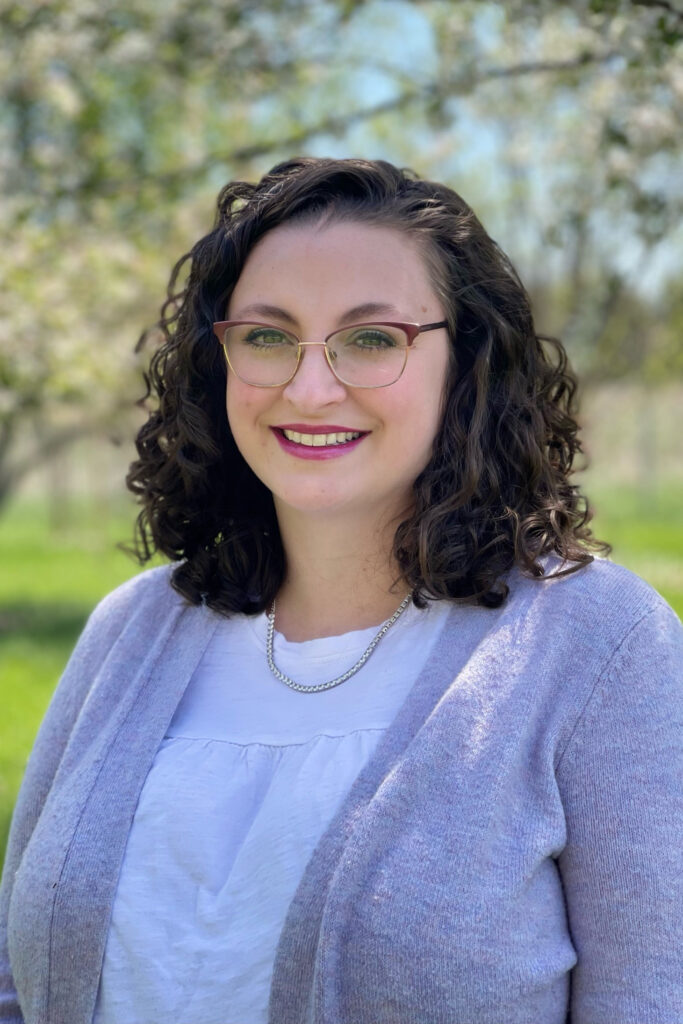
Natalie Larson
Natalie Larson has been a registered nurse at MercyOne in Des Moines, Iowa, for eleven years, working in both pediatrics and surgery. Her primary role now, however, is being mama to her three active sons. Free time has been hard to come by recently, but when Natalie finds a few moments of it, she enjoys baking, reading, and crocheting. Natalie and her husband, Alex, can be found at Journey Church in Urbandale, Iowa, on any given Sunday, where their boys are some of the most popular congregants.
Spotlight
The Community Table: Portland Open Bible Feeds Bodies and Souls
Published
3 months agoon
May 1, 2024By
Hannah Bemis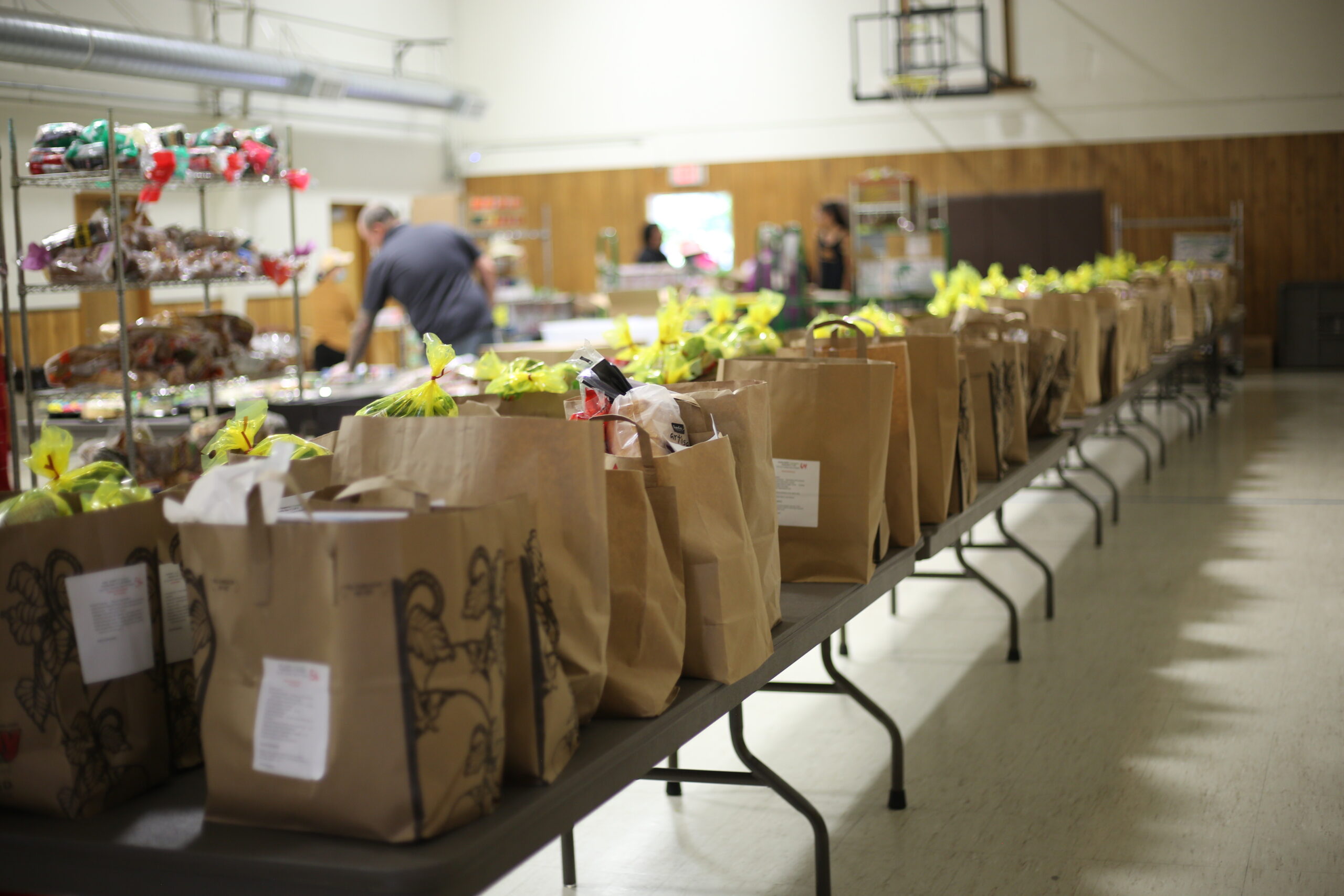
If you walk into the food pantry at Portland Open Bible (POB), you’ll see a beautifully diverse demographic that reflects the neighborhood in which it is planted. Chinese, Russian, African American, Hispanic, and White families all gather on Tuesdays and Thursdays, known in the community as “pantry days.” In addition to receiving food, they’re gifted with joy and a genuine kindness that is unusual for many of them.
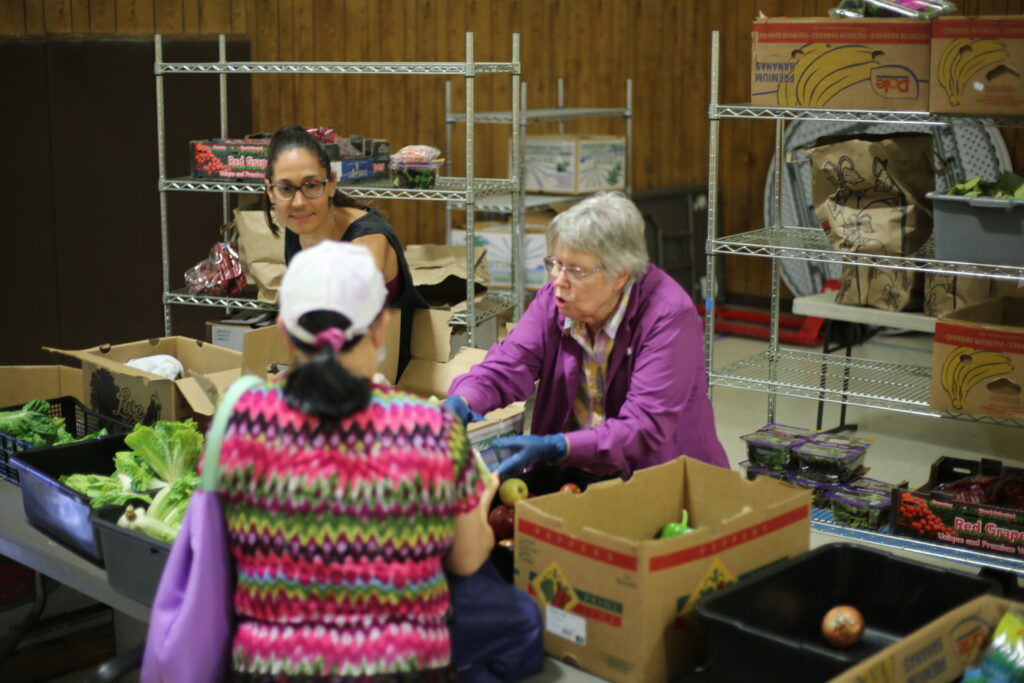
“It offers a level of humanity that they might not have had before,” said Pastor Aaron Brown. “People can say to themselves, ‘If I step on site at Portland Open Bible Church, I know that for one – people are going to be nice to me, and two – they’re going to try and help me with what I need.’”
Aaron and the food pantry team are going a step further, striving not only to give their community what it needs but also what it wants. When the pantry was in its beginning stages, the staff realized that too much of what was given away was being thrown away. They would find food thrown on the ground a short distance from the pantry, and knowing their program couldn’t be sustained with so much food waste, they were determined to solve the problem. As they began taking data on who their program was serving, noting the diverse ethnicities, they realized their food options didn’t meet the dietary needs of many of the ethnicities they were serving.
“We’re putting an end to food waste through client choice.”
“Our Asian families don’t necessarily want Ritz Crackers and Fruit Loops,” explained Aaron. The pantry developed a detailed intake form in which clients were surveyed not only on their demographics and family size, but on the types of food they most desire. This data allows the pantry to save money by purchasing only the food that is needed AND wanted by their community. “We’re putting an end to food waste through client choice.”
That’s not all. As of 2024, the pantry has begun a new program called “The Community Table.” In partnership with Providence health care, the pantry now provides weekly cooking classes with two professional chefs. Each meal is cooked from scratch with whole foods (provided free of charge to participants) and follows a recipe that was contributed by a member of the Portland community. They might cook a Russian meal one week and a Cantonese meal the next. “We have people from all cultures cooking foods from all cultures,” Aaron shared proudly. “It’s food they chose that comes with a story.” Classes are filmed, each recipe taught as a unique episode that includes the recipe’s contributor sharing the story of why that meal is meaningful to his or her family. Once all the episodes are filmed, food pantry visitors will have the option of receiving a video link for a weekly episode along with all the ingredients for that “meal of the week.”
“Everyone deserves to be fed, and to be fed healthy food.”
“I was skeptical at first, but the numbers keep growing,” said Aaron. And he’s not kidding: the pantry has expanded from its initial service of 123 families in 2013 to currently serving 84,000 families.
So, how did it all begin? Aaron credits his mother, Betty Brown, with the idea for the pantry. In 2013 the church was experiencing repeated break-ins. Despite there being technology and other valuables to steal, the only thing taken was food. Betty gathered the staff one day and gave them a choice: “We can either keep reporting these break-ins or we can start feeding our community.” They decided to do the latter. What began with a few donated canned food items by church members developed into what is now a widely recognized program funded by million-dollar grants.
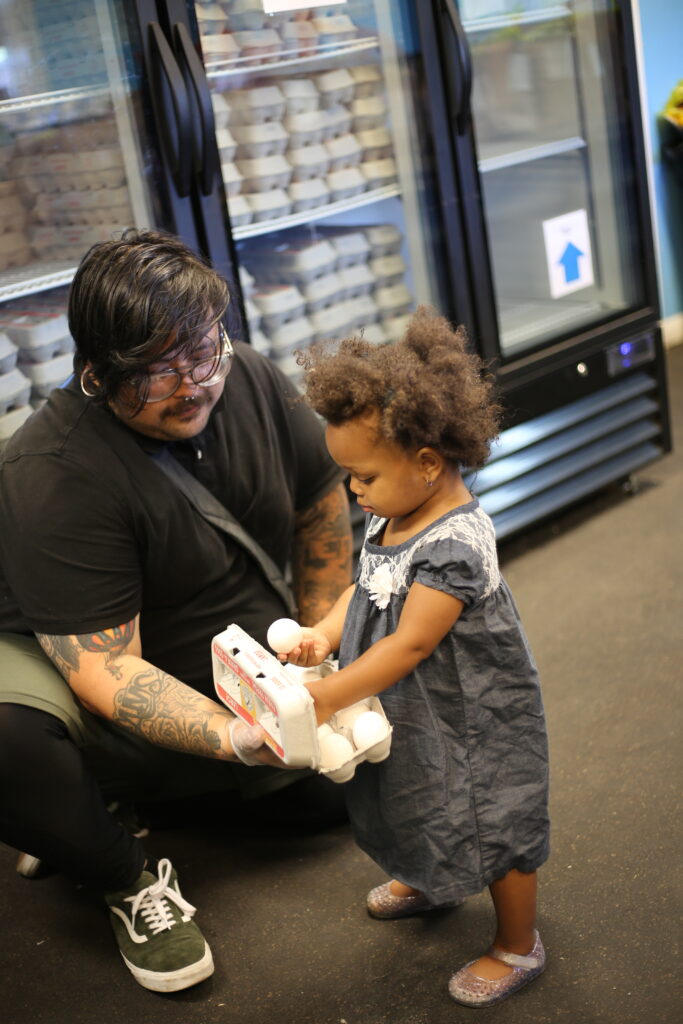
“Everyone deserves to be fed, and to be fed healthy food.” Aaron explained that their neighborhood is in an inner-city “food desert,” a technical term for a neighborhood without easy access to affordable and fresh food. These neighborhoods often have plenty of gas stations and convenience stores, but no grocery stores. Imagine being a single mom who must take city transportation to get to a grocery store in the next city over, then find a way to transport multiple grocery bags home, all with her five kids in tow. This is the reality of many families near Portland Open Bible. The pantry’s intake forms show that these families want healthy options; they’re just in a food desert where they can’t get it.
As Portland Open Bible nourishes its community, they are seeing physical nourishment carry over into the spiritual. “We try to be a beacon of light,” said Aaron. “We serve some of the nicest, friendliest people, and when they see you’ll be kind to them, they open up their whole life story. ‘I used to go to church…’ is what they’ll often say. I’ve seen former youth pastors show up, worship musicians, people high on whatever blasting worship music. They’re usually the most humble people just wanting food.” A lot of them showed up addicted, trying to get clean. They come volunteer at the pantry and get free food, then eventually end up becoming employees. “Overall,” summarized Aaron, “we’re here to bring people to Christ. A lot of people who didn’t go to church before now go to church because of the pantry.”
The pantry has expanded from its initial service of 123 families in 2013 to currently serving 84,000 families.
If you visit 92nd and Powell in Southeast Portland, you just might find a homeless man learning how to make Tiramisu. You’ll also find an innovative church feeding bodies and souls with Christ-like compassion.
“Whoever is kind to the poor lends to the LORD, and he will reward them for what they have done” (Prov. 19:17 NIV).
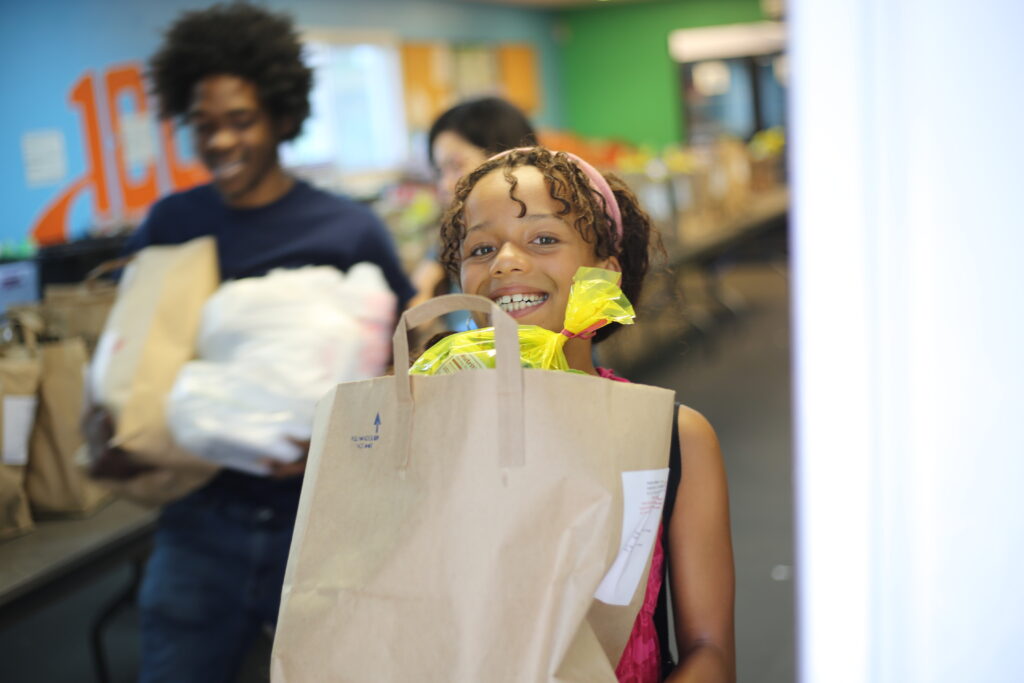
Volunteers of all ages feed people with a smile 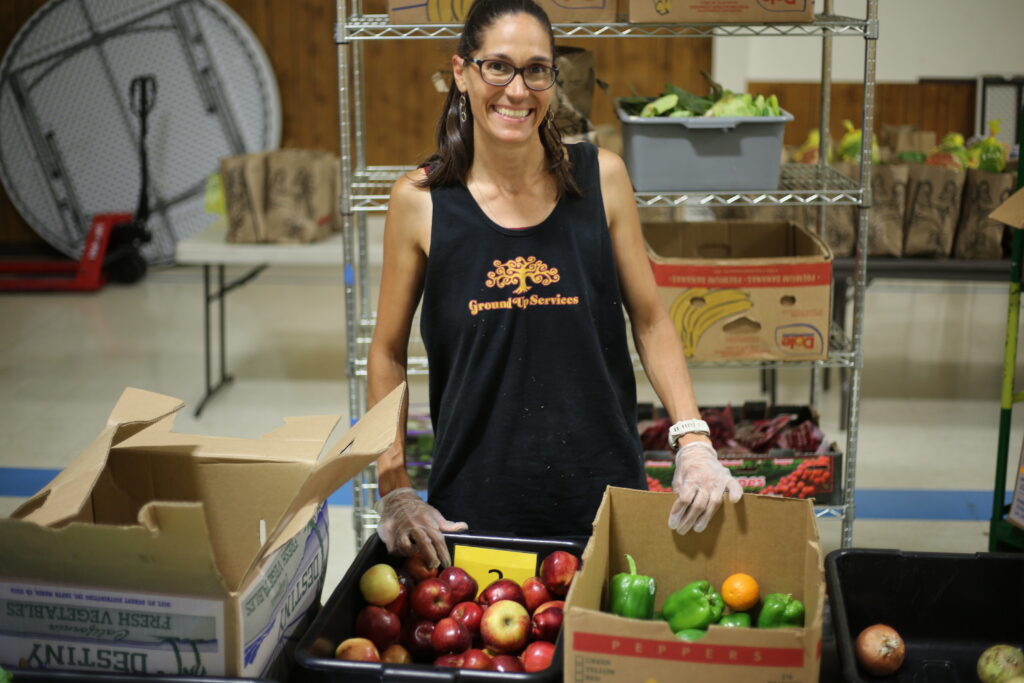
Sorting fresh produce is one of the many jobs of the pantry staff 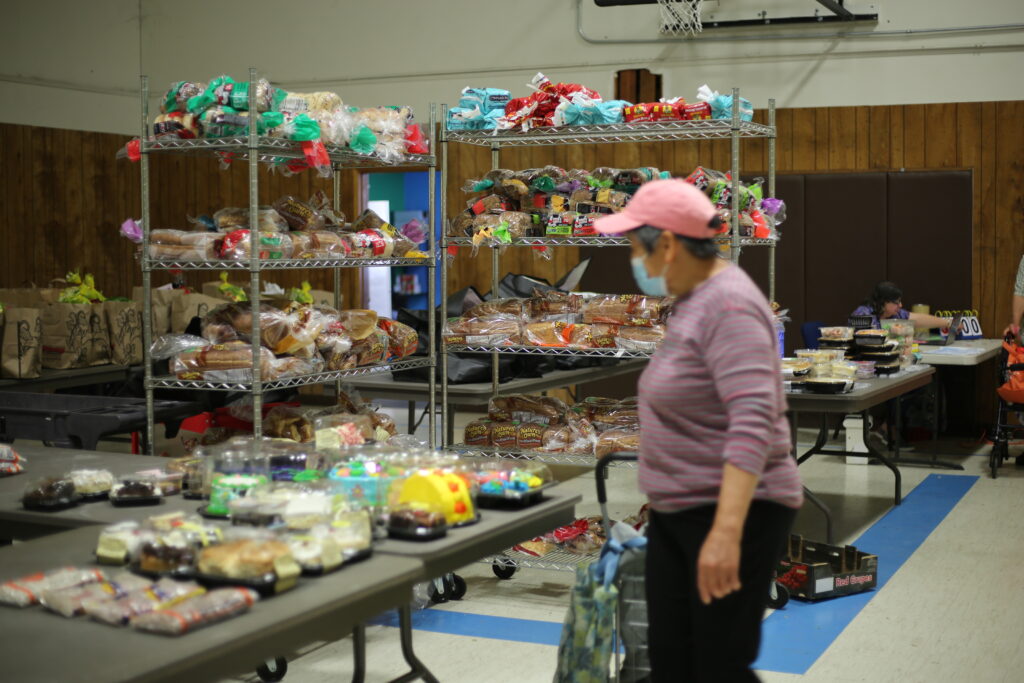
So many choices! 
Selecting the perfect egg 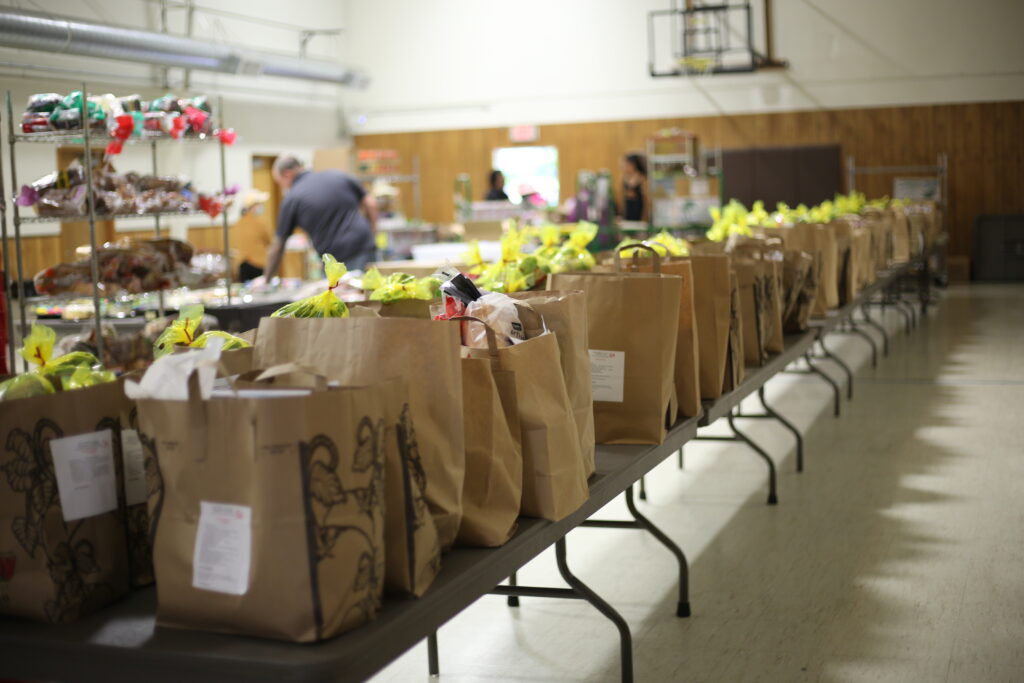
Pre-ordered food bags packed and ready for distribution 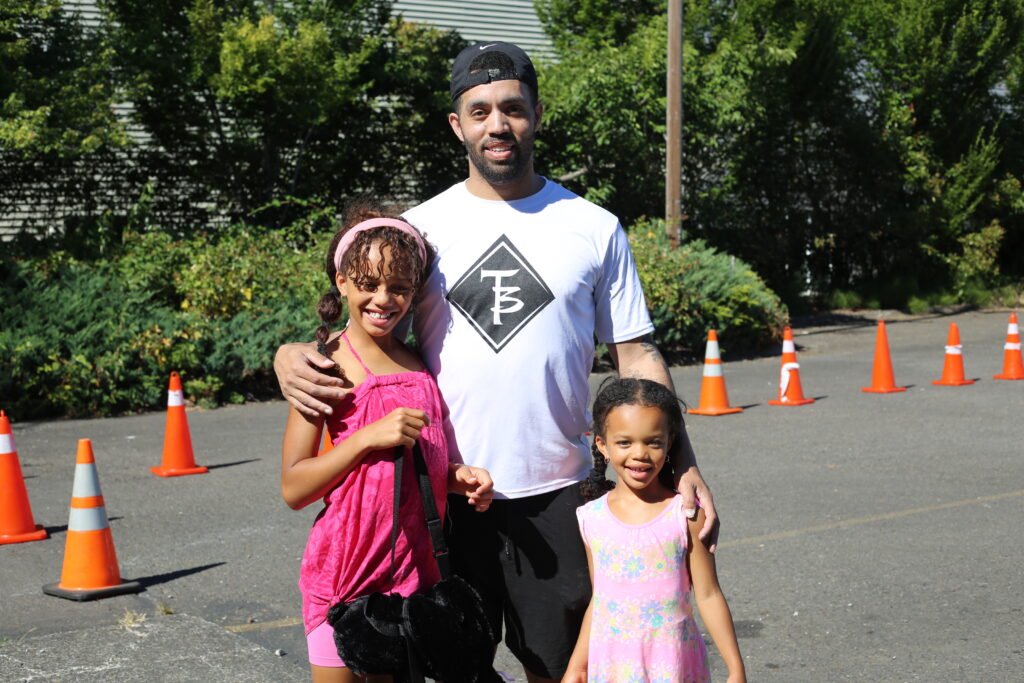
Portland Open Bible Pastor Aaron Brown, with two nieces 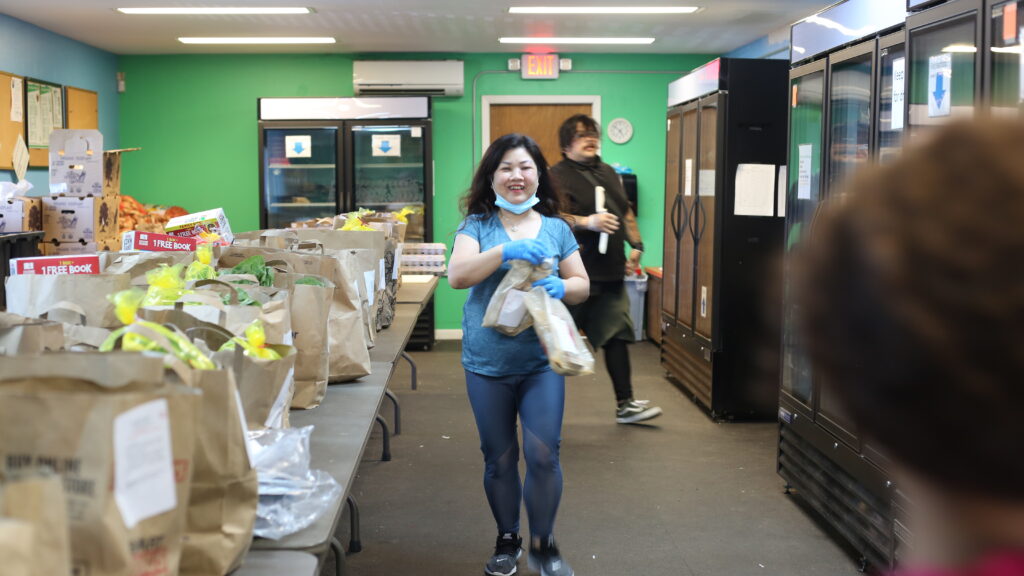
Pantry volunteers joyfully prepare food orders 
Bountiful pantry resources 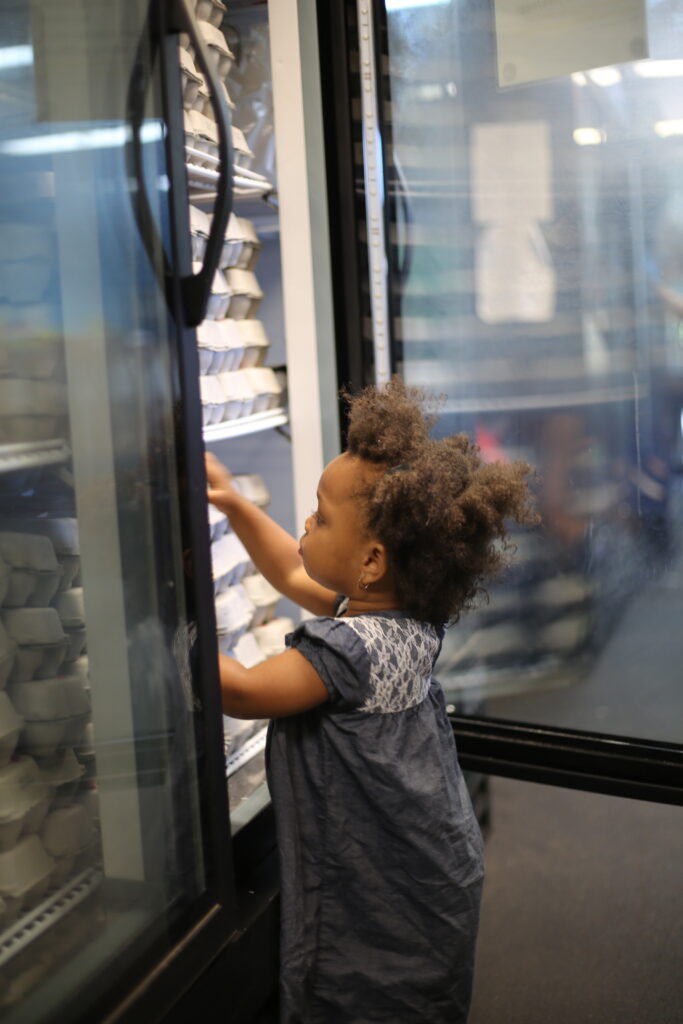
Food education (including how to select quality, fresh ingredients) is part of the pantry’s mission 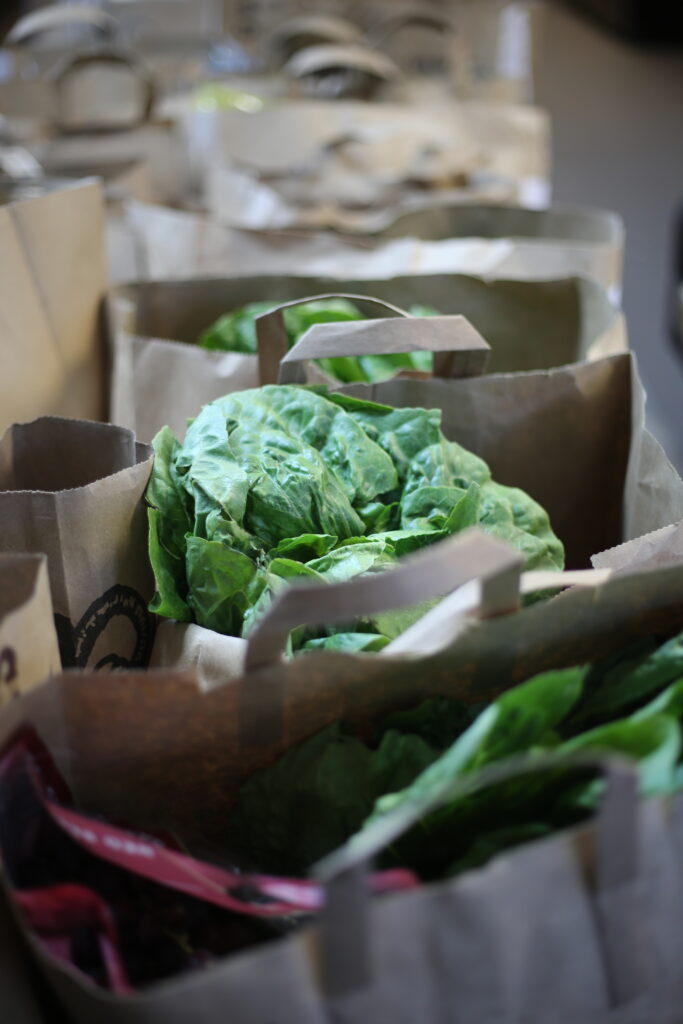
Fresh lettuce! 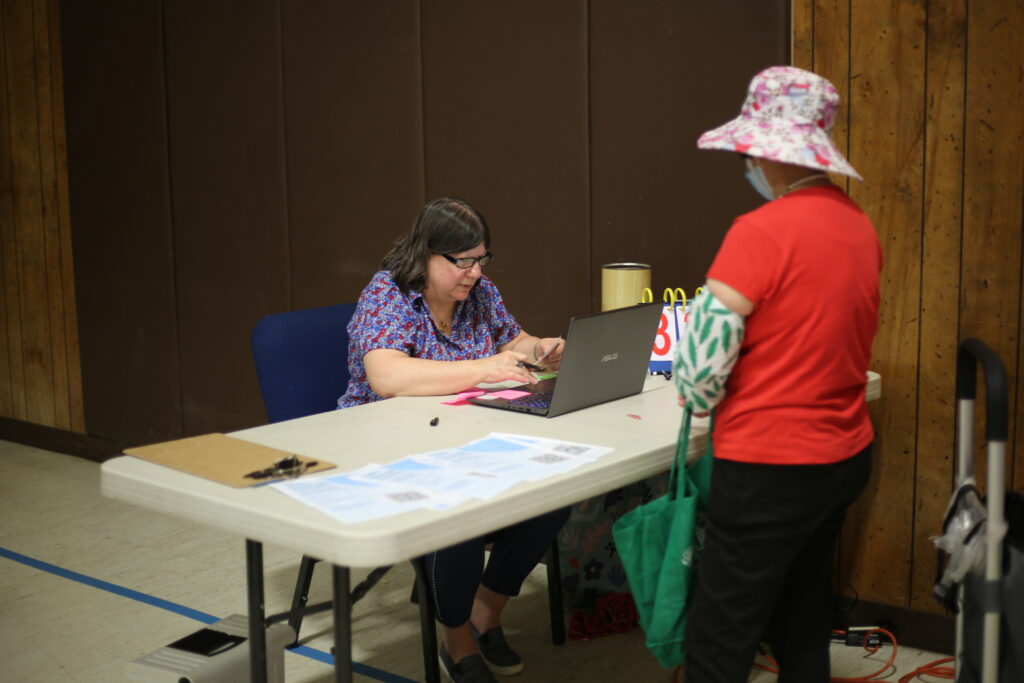
Members of the neighborhood check in to receive their weekly food 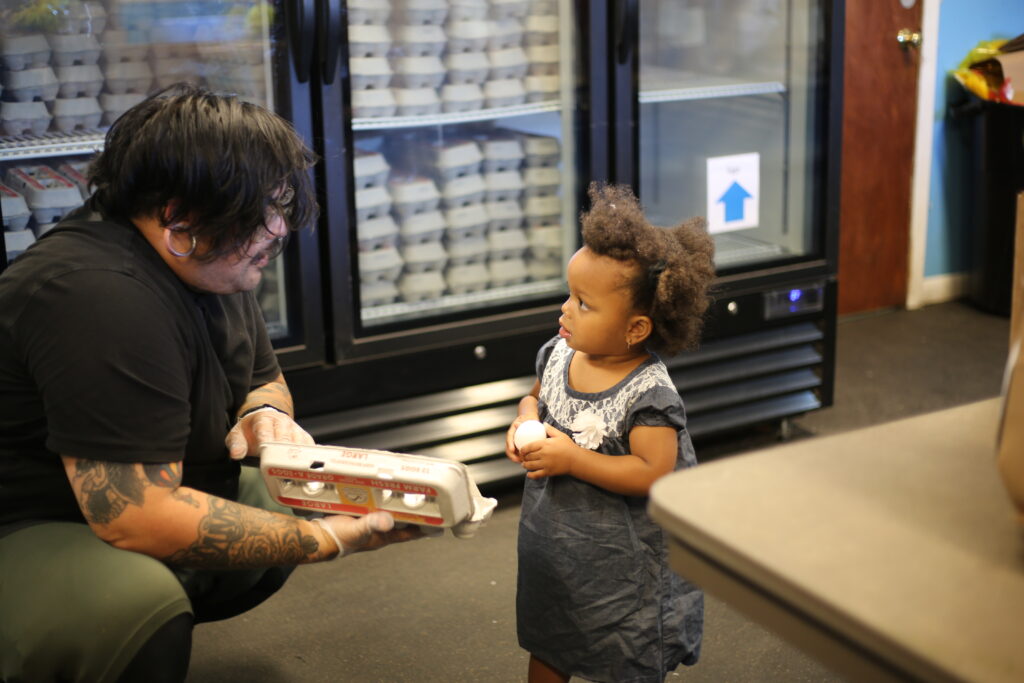
Pantry days are a weekly highlight for people of all ages 
Pantry staff hand out fresh produce to members of the neighborhood
To learn more about The Community Table, check out these videos:
About the Author
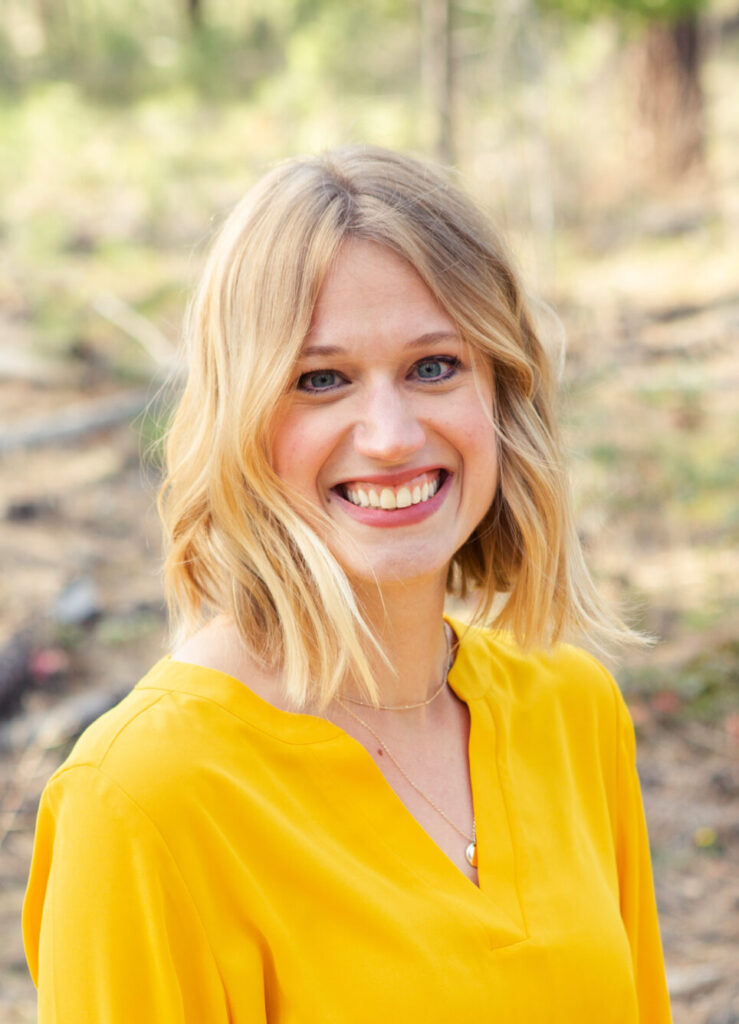
Hannah Bemis
Hannah Bemis currently serves as the Community Pastor at Turning Point Church in Spokane, Washington. She’s always wanted to do too many things when she grows up, and God has been kind enough to let her do most of them in different seasons. After seasons of mothering, teaching, writing, and staff pastoring, Hannah’s most recent adventures include serving as the Editor and Director of Message of the Open Bible and preparing to plant and co-pastor a church in Newberg, Oregon with her husband, Jordan. After Jesus and all her favorite people, she spends the remainder of her passion on pizza and dark chocolate, in equal measure.

When my husband Josh and I first began to lead Turning Point Church two years ago, we understood God was calling us to something much bigger than what we knew and much more than we could do. We knew it would be one of those “Now show me Your glory, Lord” moments, for what He’d impressed upon our hearts seemed outrageously impossible by human means. Yet that is the best medium for God to work with: the impossible!
One thing the Lord impressed upon our hearts was an urgency to multiply. This wasn’t just an inclination to grow or a passing desire to expand, but a desperate URGENCY to multiply God’s kingdom and send out workers to advance His kingdom. We did not know how this would look and honestly did not know how we could even multiply, as we were just beginning our journey as lead pastors. We knew all the statistics for churches in transition. We knew that it was industry standard in a transition for church attendance to drop up to twenty percent and for giving to mirror that same percentage. (Attendance and giving are two very important factors when wanting to multiply your church!) We also knew that it takes up to three years to change a church’s culture, which is vital when you want the culture to be one that empowers and champions church planting and sending.
We knew all the statistics for churches in transition.
We based our budget on those statistics.
We layered our expectations on those statistics.
We became students of all those statistics.
But then the Lord asked us to check out HIS statistics and His success rate, and we breathed a sigh of relief and invited Him to show us His glory.
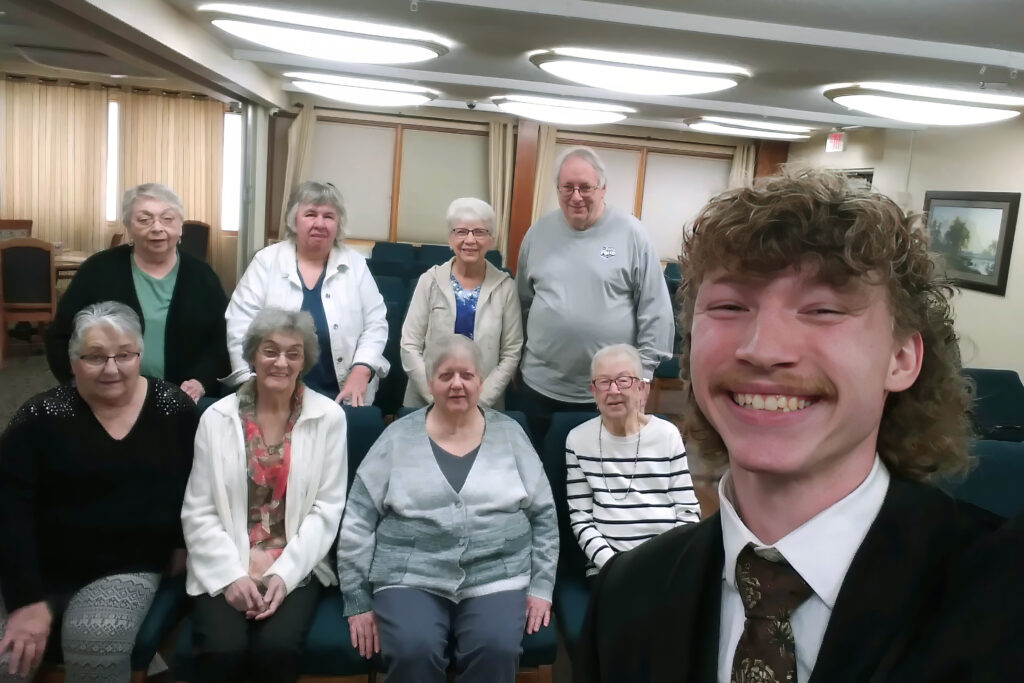
Multiplying the kingdom often begins with just an idea or, in this case, a need. Several of our precious church members had recently graduated to a retirement community in Spokane called Lilac Plaza and were no longer able to fellowship in community on a Sunday morning. Our staff pastors often spoke at Lilac Plaza’s evening Vesper services, but there was nothing for the residents on Sunday mornings; they were bereft of corporate worship or connection with the church body. Josh met with several of the residents and the director of the community, asking how it would look if we brought church to them instead of expecting them to come to our building. From those discussions and their expressed needs, it was realized that simply with a television and an already established meeting room, our church service could be shared live online with those who filled the room. After enjoying their own live worship (piano-led hymns), the residents then listened to the morning’s message and prayed together as an extension of Turning Point Church.
But then the Lord asked us to check out HIS statistics and His success rate, and we breathed a sigh of relief and invited Him to show us His glory.
The Lord, in His perfect provision and angling, had already prepared a young man by the name of Nehemiah Morgan to step into the role of campus pastor. Nehemiah, though only 22 years old, was already equipped with the gifts of shepherding and evangelism, and we knew he was the one for the job. An added benefit was that he also worked at Dutch Bros., a popular coffee shop in the Northwest known for their gregarious and energetic baristas. He could serve delicious coffee and serve the flock at Lilac with equal energy!

I will never forget when Nehemiah shared about the first time our Lilac members took communion right along with the church family online and how one woman tearfully partook of the sacrament, worshipping the Lord because it had been years since she was able to have communion with a church family. Years! The beauty, the privilege, and the joy of meeting together for worship in community is a gift I will never take for granted.
Our Lilac campus is in every way an extension of Turning Point Church: they participate in our Growth Track membership process, they join our “Dream Team” of volunteers, they interact with the message that is given, they send in their prayer requests, and they support us with their prayers as well. The wonder of it is that though Nehemiah is on one end of the age spectrum and the members of Lilac are on the other end, they recognize and honor the calling of the Lord upon Nehemiah and are flourishing under his shepherding and love.
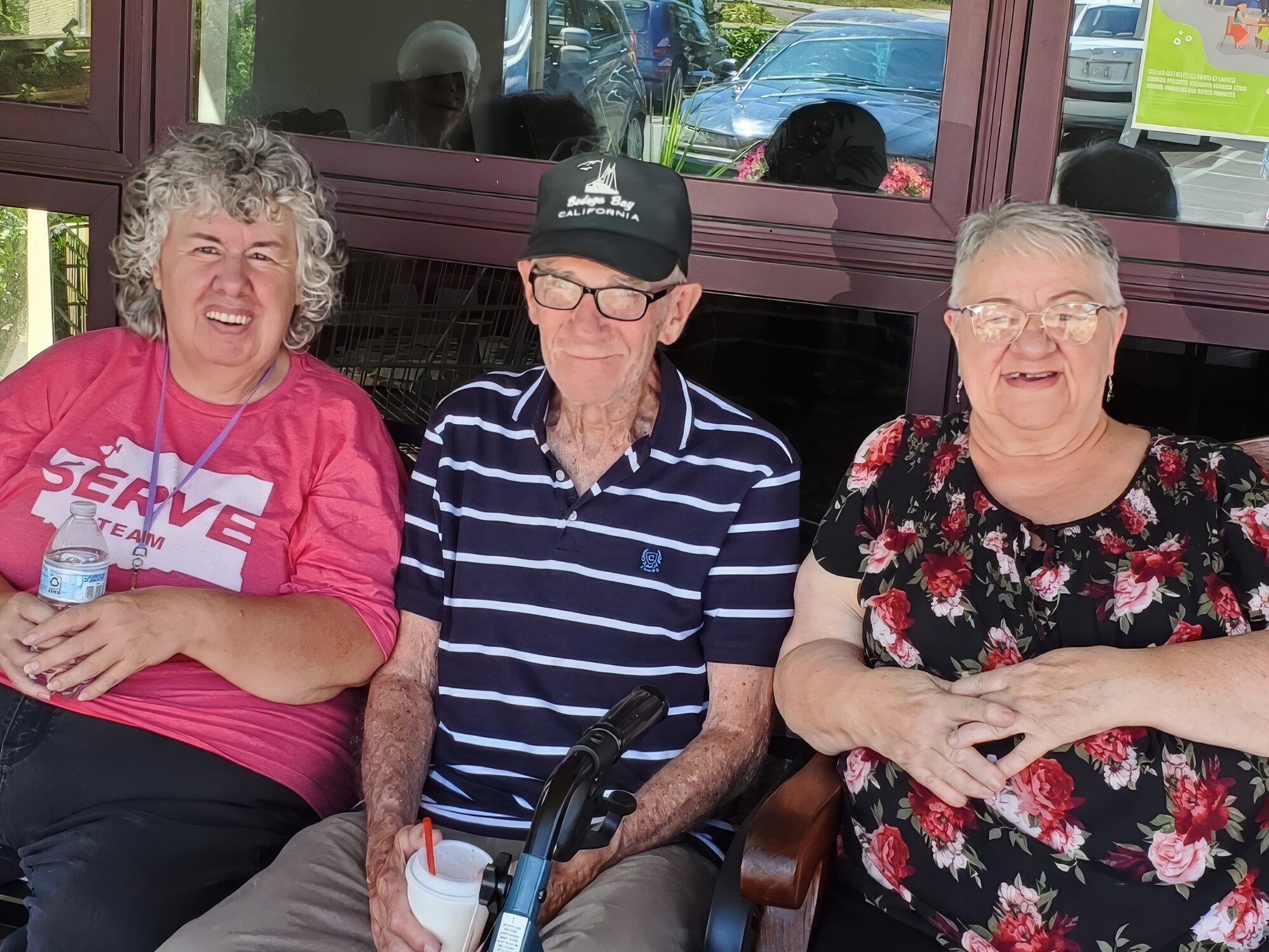
Turning Point has multiplied, and in a way that we never expected! For that reason, we continue to keep our eyes wide open for the Lord to creatively present a new opportunity; a fresh way to BE His church, to SEND His church, and to MULTIPLY His church.
In this the Lord is truly showing His glory!
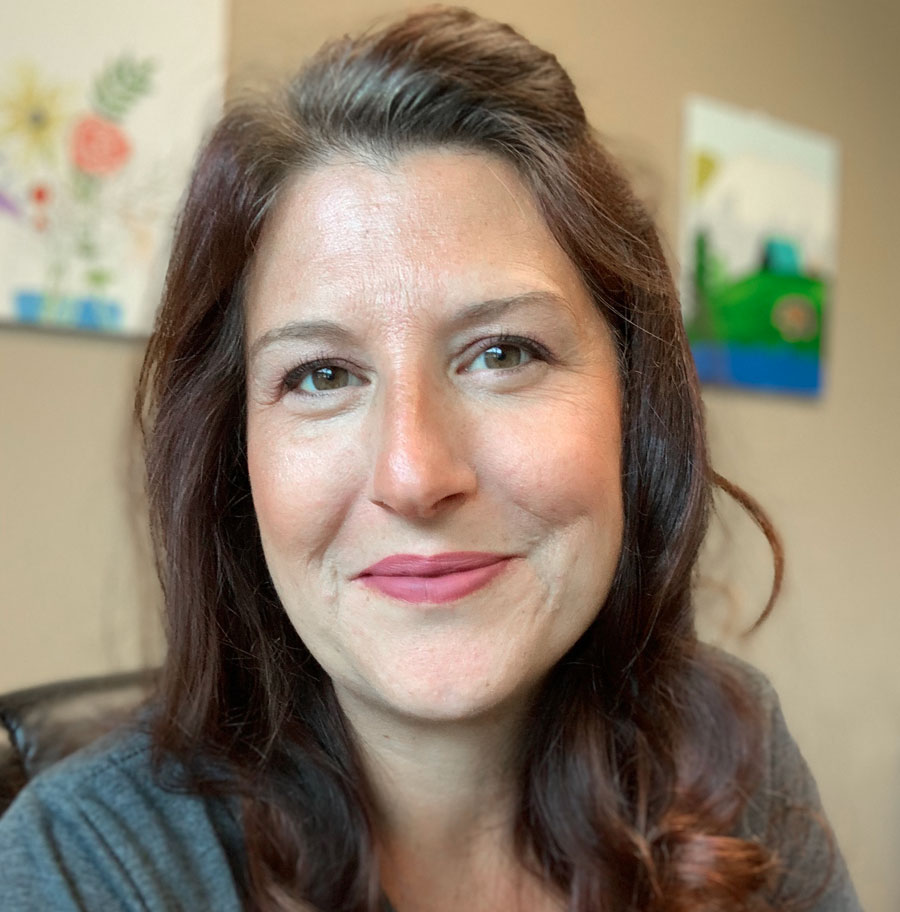
Melissa Stelly
Melissa Stelly serves as the executive pastor at Turning Point Church in Spokane, Washington, alongside her husband, Josh Stelly. She has attended Turning Point for 32 years. She is the mother of three daughters, adores camping, hiking, and adventuring, is a voracious reader, and considers Mt. Rainier one of the greatest accomplishments the Lord created. Most days in her free time you will find her curled up with a good book or taking a long walk.
Follow Us
Subscribe to the Message







